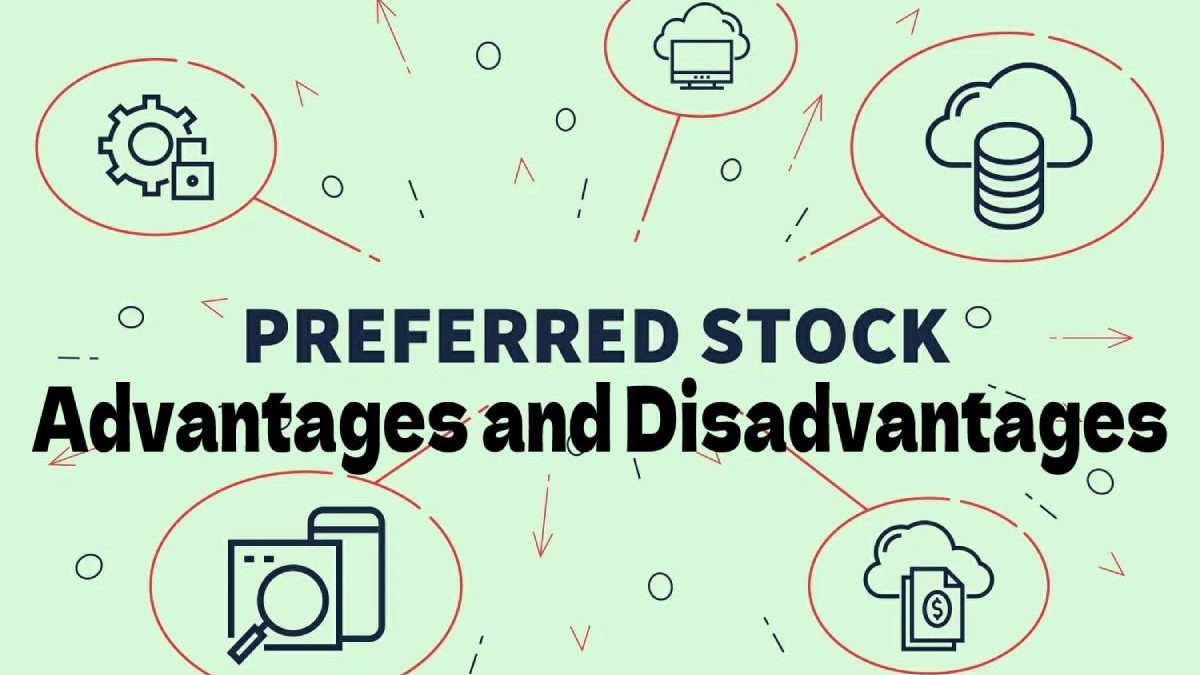Preferred Stock, issued by companies seeking to raise capital, combine the characteristics of debt and equity investments and are therefore consider hybrid securities. Priority shareholders have advantages and disadvantages. Instead, they collect dividend payments before shareholders receive that income. But on the other hand, they don’t usually like the voting rights of ordinary shareholders.
- Preferred shareholders receive dividend payments before joint shareholders.
- Preferred shareholders do not have voting rights like their shareholder counterparts.
- Firms incur higher issuance costs with selected stock than when they issue debt.
Table of Contents
Advantages of Preferred Stock
Preferred stock owners receive fixed dividends long before co-shareholders see any money. But there is discomfort in this case because a type of preferred stock called accumulating stock allows the accumulation of unpaid dividends that must pay later. Therefore, as soon as a struggling business recovers and returns to the black. Those unpaid dividends are passed on to select shareholders before any tips can be In any case, prizes will only pay if the company makes a profit.
Top Company Asset Claims Only
When a company goes bankrupt and is subsequently will liquidate, selected shareholders have a higher demand for the company’s assets than ordinary shareholders. Not surprisingly, preferred stocks appeal to conservative investors. Who enjoy the comfort of disadvantaged risk protection that these investments offer.
Additional Investment Benefits
A subcategory of preferred stock called convertible shares allows investors to trade this type of preferred stock for a fixed number of shareholders. Which can be profitable if the value of the common stock begins to rise. These participating shares allow investors to earn additional dividends above the fixed rate if the company meets specific predetermined earnings targets.
Also Read: Why Is Real Estate And How to Analyse
Disadvantages Of Preferred Stock
The main disadvantage of holding preferred shares is that investors in these vehicles do not have the same voting rights as ordinary shareholders. This means that select shareholders do not view the company as it is by traditional equity shareholders. While this shortfall is the guaranteed return on investment, if interest rates go up. It can reduce the fixed dividend that seemed so profitable. This can lead to buyer resentment toward preferred stock investors. Who may understand that higher-interest fixed-income securities would outperform them. Financing through equity capital. Whether with equity or selected stock, lowers a company’s debt-to-equity ratio, which is a sign of a well-run business.
Preferred Stock- Company Benefits

Issuing shares will prefer issuing companies in various ways. The lack of voting rights for priority shareholders puts the company in a strong position. Allowing it to maintain greater control. In addition, companies can issue redeemable preferred stock, giving them the right to repurchase shares at their discretion. If a dividend of 6% of the claims due is issued, but interest rates fall to 4%. Then a company can buy the outstanding shares at market price and reissue those shares at a higher dividend rate. It ultimately reduces the cost of capital. Of course, this same flexibility is at a disadvantage for shareholders—more low.
Also Reda: What Is The Stock Market? And How to work



Review Preferred Stock: Advantages and Disadvantages.